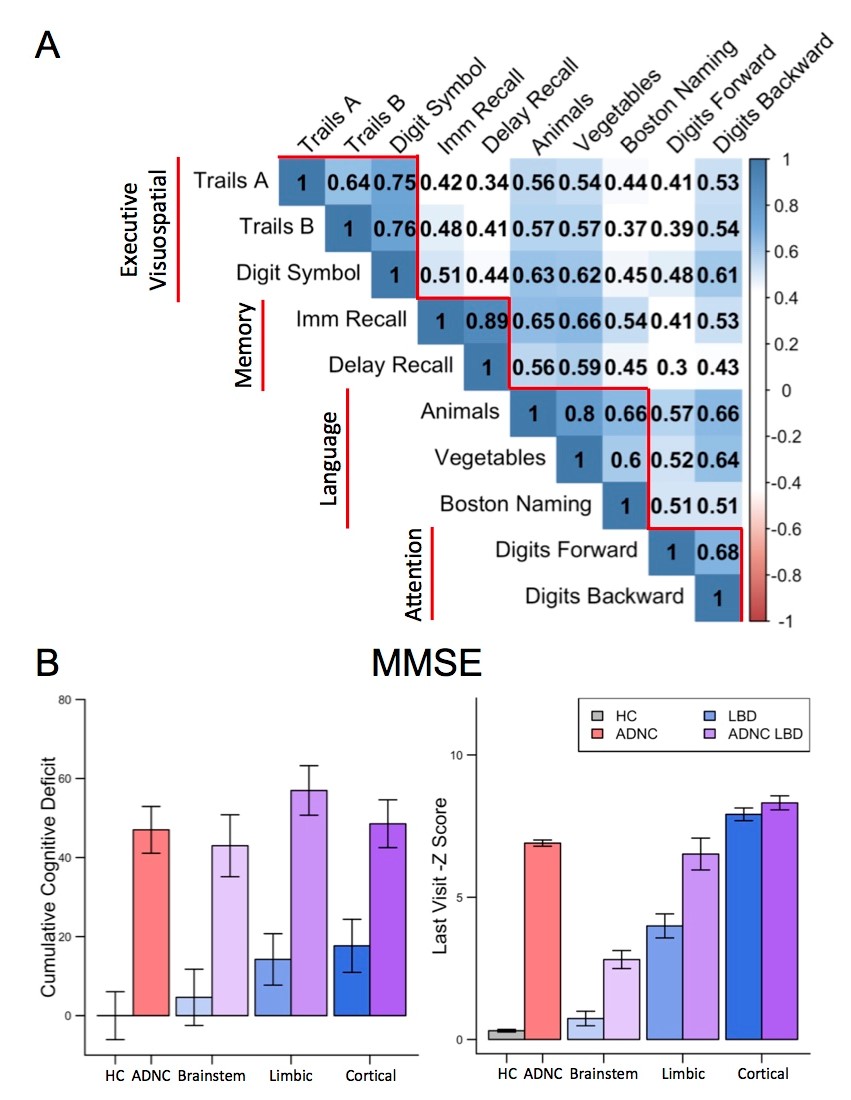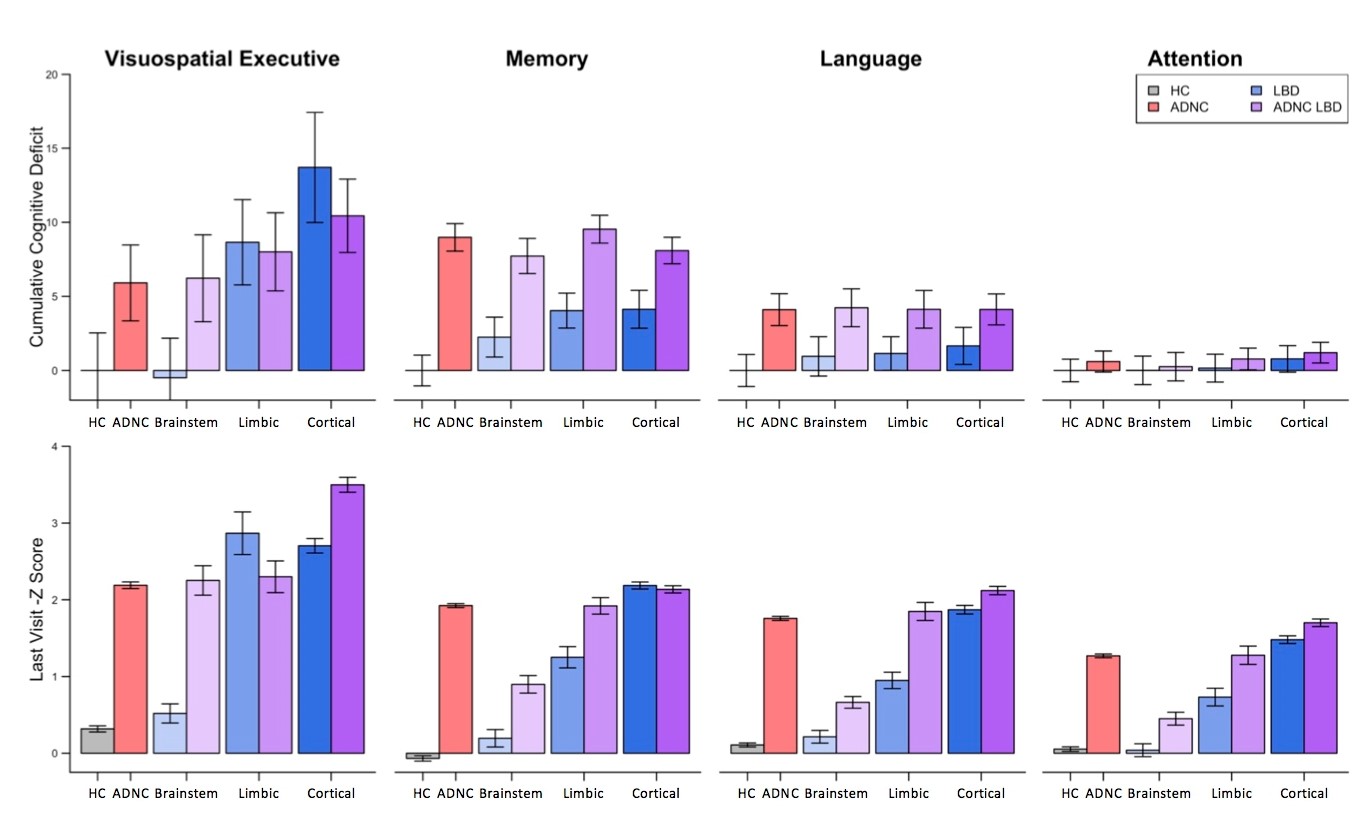Objective: To examine the impact of Lewy body disease neuropathology (LBD) on domain-specific cognitive impairment in isolation and in combination with Alzheimer’s disease neuropathologic change (ADNC).
Background: ADNC is commonly observed Lewy body diseases (Parkinson’s disease, Parkinson’s disease dementia, and related Dementia with Lewy bodies) at autopsy. It is unclear to what extent ADNC contributes to domain specific cognitive impairments observed in patients with Lewy body diseases.
Method: Data from the National Alzheimer’s Coordinating Center database was obtained for 2,433 participants with antemortem longitudinal neuropsychological assessment and postmortem neuropathological assessment. We employed a novel measurement of cognitive impairment that incorporates information about the individual’s initial deviation from normative performance and decline over time. We compared domain-specific cumulative cognitive deficits in LBD, ADNC, and combined LBD/ADNC at three pathologic stages of LBD (brainstem, limbic, and cerebral cortical).
Results: This study included 111 participants with LBD only, 741 participants with combined LBD/ADNC, 1,357 participants with ADNC only, and 224 healthy controls (HC). Limbic and cerebral cortical LBD groups exhibited similar executive/visuospatial deficits as combined ADNC and LBD impacting the limbic and cerebral cortical regions. The cerebral cortical LBD group demonstrated a significantly greater executive/visuospatial deficit relative to ADNC only. In contrast, ADNC and ADNC/LBD groups demonstrated significantly greater cumulative memory deficits relative to HC and LBD only groups, across all LBD pathologic stages.
Conclusion: The results of the current study demonstrate that the impact of ADNC and LBD pathology on cognition differs based on the cognitive domain examined and the state of progression of LBD pathology. Limbic and cerebral cortical Lewy body pathologies impact executive/visuospatial functioning independent from the impact of ADNC. In contrast, a greater memory impairment is driven by ADNC, with relatively weaker deficits observed in the LBD only groups. These findings have relevance for predicting progression in Lewy body diseases. Further, detailed characterization of cognitive phenotypes of LBD is crucial for the development of effective disease-modifying therapeutic trials. These results were submitted to the AAIC 2020 Conference (July 26th-30th, 2020).
To cite this abstract in AMA style:
S. Ryman, M. Yutsis, L. Tian, V. Henderson, T. Montine, D. Salmon, D. Galasko, K. Poston. Differential impact of Lewy body disease and Alzheimer’s disease neuropathology on cognition [abstract]. Mov Disord. 2020; 35 (suppl 1). https://www.mdsabstracts.org/abstract/differential-impact-of-lewy-body-disease-and-alzheimers-disease-neuropathology-on-cognition/. Accessed January 2, 2026.« Back to MDS Virtual Congress 2020
MDS Abstracts - https://www.mdsabstracts.org/abstract/differential-impact-of-lewy-body-disease-and-alzheimers-disease-neuropathology-on-cognition/


